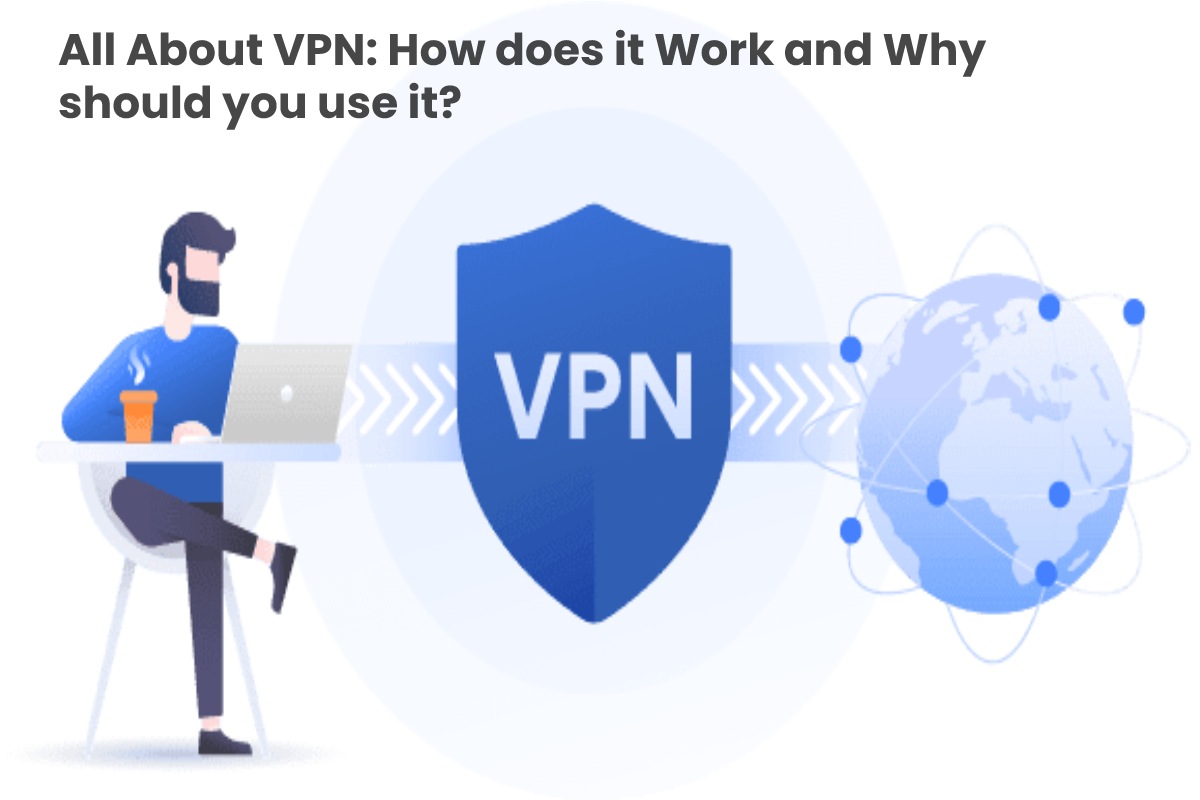A VPN when you surf the Internet. VPN stands for Virtual Private Network. It offers a simple and effective solution that allows you three essential things when you are online: more security, online privacy, and freedom.
If you are not familiar with the idea of a VPN, it cannot be very safe. This page explains exactly how a VPN mechanism and why it is still used. We tell you all you need to know about the pros and cons of a VPN. We’ll also show you some great VPN providers that you should try for yourself.
What is a VPN?
VPN, or virtual private network, creates a secure connection between your device (for example, your laptop or smartphone) and the Internet. This isolated network lets you send your traffic to an external server through an encrypted and secure connection. From there, data traffic continues to be transmitted to the Internet. The IP address showed on the Internet also has ups and downs.
A VPN masks your actual IP address
When we connect, we all have unique IP addresses. You can think of this address as a phone number or a home address, but your IP address is a personal identification code for your Internet connection for your laptop or smartphone.
It reveals your place and remains linked to the person who pays your Internet service provider. With your IP address, you can stay recognized and tracked online no matter what you do, except when using a VPN.
A VPN won’t always cover your tracks – other methods could keep your online identity up to date. Techniques that use WebRTC leaks and browser fingerprints could still capture your data. Either way, a VPN can protect your privacy online in most cases.
If you want to get started, you will find short step-by-step instructions below. We’ve also put together a list of the best VPNs on offer for you to try. Would you use another [VPN] instead? Then you will find more earners on our [VPN] review page.
How does a VPN work?
When you find a reliable and secure VPN provider, download and install their software, choose your preferred security settings, and set up a secure connection to the VPN server of your choice. Connecting to a VPN is easy. When the relationship is established, it will happen with your data:
• The VPN software on your laptop encodes your traffic and sends it to the VPN server through a secure connection.
• And also, The VPN server decrypts the encrypted data on your laptop.
• Although, The mail sends your data over the Internet and will respond to you, the worker.
• Traffic return to you first after the VPN server encrypts it again.
• The VPN software on your media will decrypt the data so that you, too, can understand/use it.
The VPN connection will encrypt your traffic, making it more difficult for hackers and other parties to intercept and view. The secure connection also offers the user greater anonymity, as Internet traffic remains redirected through an external [VPN] server. Since you are browsing the Internet using the IP address of the [VPN] server, your actual IP address remains hidden.
Usually, your IP address could reveal the location and even your identity because it is unique to your Internet connection. By using a diverse IP (the one assigned to the [VPN] server), none of your online actions are tracked so that you can surf the Internet more anonymously.
The [VPN] application runs on the link of your laptop, tablet, or smartphone.
Why do I need a VPN?
You may be wondering if using a [VPN] is essential. A part of our life in the form of a snowball is happening in a connected way. We manage our finances, stay in touch with our friends, review our medical records, and work online. All this information about you mustn’t remain made public.
After all, you don’t just consent to your bank statements being out there. If you don’t protect your internet connection, you risk hackers, governments, your ISP, websites, your employer, and all kinds of other parties finding it closer than you’d like. A [VPN] protects your data from all these ideas.
What is a VPN for?
There are many explanations why you should use a [VPN]. Some of the most common are:
- Increase your privacy online.
- Gives you more security online.
- You agree to browse the Internet more freely (because you avoid restrictions and online censorship).
- Makes public WLAN networks more secure.
How does a VPN provide online security?
A [VPN] provides security by strongly encrypting all your Internet traffic before it reaches the [VPN] server and routes your traffic through a much more secure “VPN tunnel.” It makes it difficult for others to intercept and view your data, such as governments and hackers.
However, it may also be a good idea to use an [VPN] at work or home. Providers like Nord [VPN] or express [VPN] proposal first-class AES 256 encryption levels. You don’t have to worry about someone collecting your data and using it against you with this guard.
How does a VPN provide anonymity and privacy online?
A [VPN] gives you more anonymity online because you are not browsing the Internet with your public IP address. Your IP address is hidden from everybody else (it becomes the IP address of the [VPN] server) as soon as you assign it to the [VPN] server.
Generally, others can link your online activities to your identity and location using your IP address. For instance, your Internet Service Provider can see the websites you visit. And also, in general, many governments can track everything you do online.
If you use a [VPN], your online actions can only be outlined to the VPN server, not you personally (unless, of course, you remain connected to an individual website like Google or YouTube). Many [VPN] providers don’t even reveal or monitor what you are doing through their servers. It has made you much more anonymous on the Internet, as you can no longer remain identified or tracked via your IP address.












